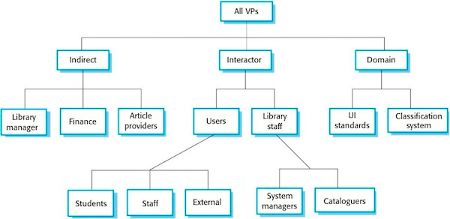September 11, 2013
The best phone I ever had was a Nokia 6120. It wasn’t smart, it didn’t text, it was just a dual band (analogue/digital) and had an incredible standby of 14 days and talk of 3.5 hours. Considering that my previous phone was a Mitsubishi that had just 15 minutes of talk time, about 6 hours of standby and weighed 225 grams, the Nokia was a huge improvement.
Over the next several years I had a variety of cells phones, but none has held the same spot in my heart as the Nokia 6120. That is one of the reasons why I experienced a sense of loss when the once proud Nokia sold its phone business in its entirety to Microsoft at the beginning of September. Before that, Nokia had struck a deal that saw one of Microsoft’s senior VP’s Stephen Elop became Nokia’s president. He announced almost immediately that Nokia would jettison all but the Window’s mobile platform. As I recall, Nokia also got billion dollar cash injection, presumably to help grease the skids for Windows mobile.

This began a process whereby Nokia turned its back on trying to develop either its own mobile platform (Symbian) or partner with others (Intel and Meego) to do so. These were genuinely serious efforts. Integral to both was the Qt multi-platform C++ GUI library. Qt offered software developers a standard set of programming interfaces that could be deployed into any number of platforms. All you had to do was to take you Qt application and compile it under the OS you wished to target.
Initially developed by a company called Trolltech Qt’s motto was ‘Code Less. Create More. Deploy everywhere.‘ And this was certainly true in the Windows-Mac-Linux worlds and with the acquisition of Trolltech by Nokia in early 2010, it appeared that with Nokia’s deep pockets that Qt was destined to also run under whatever mobile OS you wanted. This at the time struck me as a serious long term vision for Nokia. It would leverage it’s undisputed global manufacturing reach by having software that was designed from the ground up to run on anything. It didn’t workout. A scant 14 months later (April 2011), Nokia sold it’s Qt business to a Finnish company called Digia shortly after hooking up with Microsoft and Elop.
So what happened? How did a long term strategy that needed several years to work founder in a period just months?
Well, I think several things happened. First producing at mobile version of Qt to work beyond Nokia’s Symbian platform turned out to be harder than people thought.
Also, by the end of 2010, it was clear that Apple’s iPhone and Google’s Android platforms were runaway successes, garnering between the two of them and impressive 49.5% market share. And Qt had nothing going on these market share giants’ platforms.
 |
| As you can imagine... big platforms. |
Nokia actually gained market share, but it was growing at an annualized rate of 30% while Android had a rate of 615.5% and Apple was still growing by 85.9%. It must have seemed to Nokia’s board as they searched for a CEO in the winter of 2011, that their Qt strategy wasn’t going to bring in results soon enough to matter. Hence Nokia started to cast about for a different strategy. What is truly confounding in all this, is why they thought a Microsoft alliance made sense. Microsoft had a minuscule 3.1% market share in 2010, down from the preceding year. Plus their rate of growth was falling. Citation: all figures taken from http://arstechnica.com/gadgets/2011/01/android-beats-nokia-apple-rim-in-2010-but-firm-warns-about-2011/.
So Nokia wasn’t exactly lining up with a proven market winner, quite the contrary. At the end of June 2013, Apple’s share of the smartphone had declined to 13.2% while Android had soared to 79.3%. Although Microsoft platforms experienced strong growth, their overall share was 3.7%. From Nokia’s point of view, their strategy of focusing exclusively as the MS platform, had to be seen as a bust. They were in serious danger of becoming another who also ran, like Blackberry – too late to the market to gain any lasting traction.
 |
| Slippery when late. |
Thus Microsoft’s purchase of Nokia looks like it was intended to guarantee that at least one major manufacturer in the world would be producing phones based on Microsoft’s software. Can the strategy work? The odds are against success, but Microsoft are superb marketers (and Nokia is no slouch either). And the mobile space, phones and tablets is a must win situation for Microsoft. Expect them to pull out all the stops and spare no effort in this fight.
And the time is propitious for change, as Microsoft looks for a new CEO. I’ll be keeping an eye on Elop, as he appears to be a logical choice to work the strategy.
Written by: Rick Gregory
Image Sources:
http://www.thetelecomblog.com/2013/09/04/its-official-microsoft-acquires-nokias-mobile-division/
http://gambarhp.com/nokia/nokia-6120-1715.html
http://davy.preuveneers.be/phoneme/?q=node/1
http://www.zivaveng.com/rec/66-Elbit-Elop
http://www.mlahanas.de/Greeks/Mythology/Images/GiantsKircher.jpg
http://www.wpclipart.com/cartoon/signs/more_signs/warning_slippery.png



























